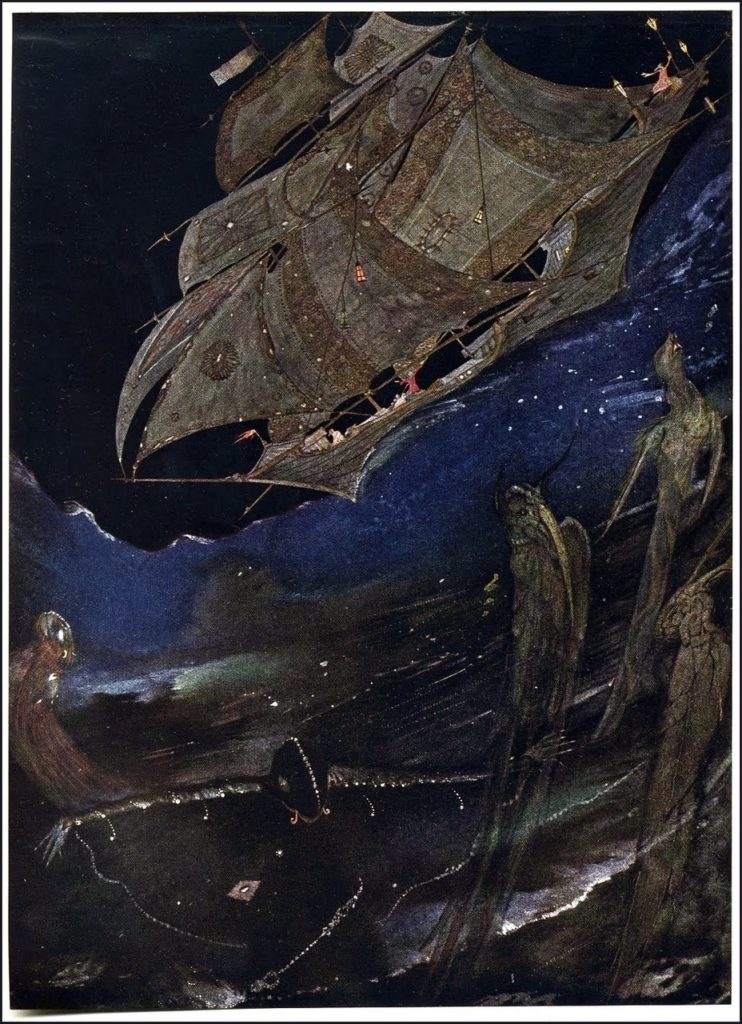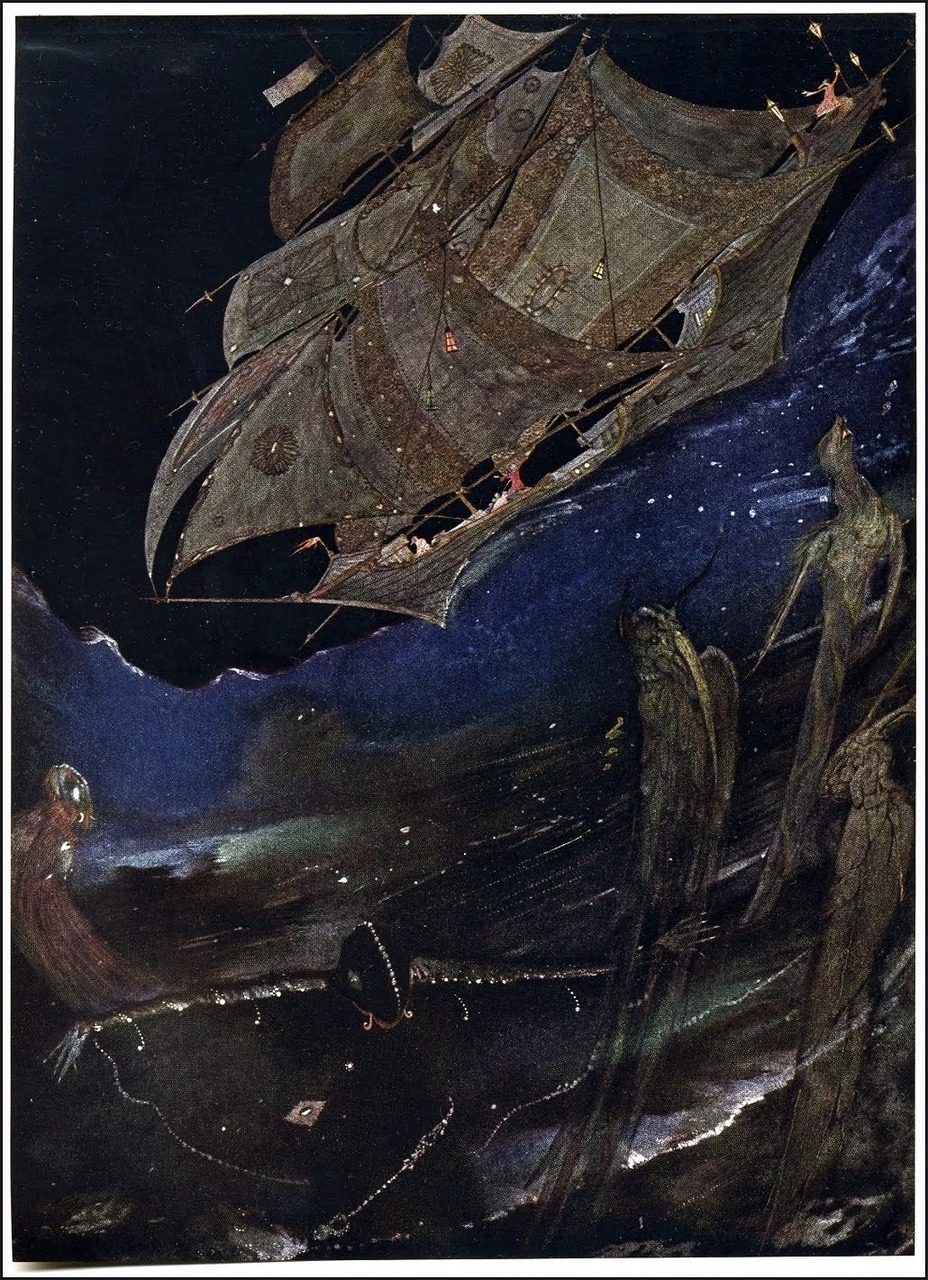
By Murray Ellison
Poe’s first important tale, “MS. Found in a Bottle,” (1833) won the Baltimore Visiter’s first prize for fiction. Poe scholar, Thomas Mabbott calls it a “masterpiece,” contending that “winning the contest set the author on the way to lasting fame” (Tales and Sketches 131). The Visiter wrote that “Poe’s tales are eminently distinguished by a wild, vigorous and poetical imagination, a rich style and a various and curious learning” (Thomas and Jackson 137). “MS.” reveals Poe’s interest in a broad range of science-related topics, including secret writing, conundrums, scientific realism, and life after death. Carlson proposes that the story mocks the popular sea voyages of that period, specifically those of Captain Adam Seward’s (pseudonym for Captain John Symmes) 1820 Symzonia-a Voyage of Discovery. Symmes’ “Theory of Concentric Circles” proposed that the Earth was hollow at both Poles (119). It presumed that a ship approaching the Poles would be sucked into an abyss through the earth. Poe’s selection of the story’s setting indicates that he was aware of the public’s interest in this scientific topic.
Poe reports in the style of a science journalist who is intending to submit his story to a travel or nautical magazine: “Our vessel was a beautiful ship of about four hundred tons, copper-fastened and built at Bombay of Malabar teak. She was freighted with cotton-wool and oil, from the Lachadive islands. Isaac Gewirtz contends that, “Poe’s story was never meant to correspond with the world. The location was selected to flaunt transparent and geographic pretense” (23). Poe writes: “We also had on board coir, jaggeree, ghee, cocoa-nuts, and a few cases of opium” (136), using both scientific and literary language to add to the realism of the story. “The hulk flew at a rate defying computation, before rapidly succeeding flaws of wind, which, without equaling the first violence of the Simoom, were still more terrific than any tempest I had ever before encountered” (138). As the ship advances, the boundaries between reality and imagination become blurred. The narrator’s invisibility to the crew suggests that the entire journey is taking place in his mind, i.e., he can see the crew and captain of the ship, but they cannot see him. He remarks, “About an hour ago, I made bold to thrust myself among a group of the crew. They paid me no manner of attention, and, although I stood in the very midst of them all, seemed utterly unconscious of my presence” (143). By being unobserved, the narrator is looking at the relics of science as an outsider. He concludes that much of nineteenth-century science is outdated and largely based on theories of misguided scientists like Francis Bacon and Symmes.
*This article, which is part of Murray Ellison’s 2015 Virginia Commonwealth University M.A. Thesis on Poe and 19th-Century Science, was first published in www.Litchatte.com on 3/16/2017.
In next month’s Poe Blog, I will discuss the horror of Poe’s tumultuous story as it is experienced by the narrator. I will also comment on how this early Poe story begins to connect his grand theories of the Universe with some of those found in his last published work – Eureka: A Prose Poem.
Works Cited
Gewirtz, Isaac. Edgar Allan Poe: Terror of the Soul, Ed. New York: New York Public Library, 2013.
Levine, Stuart and Susan F. Edgar Allan Poe: Eureka. Eds. Urbana: University of Illinois, 2004.
Poe, Edgar A.. Tales and Sketches, 1831-1849. Ed. Thomas O. Mabbott. Urbana: University of Illinois Press, 1978.
Poe, Harry Lee. Edgar Allan Poe and the Mystery of the Universe. Waco: Baylor University Press, 2012.
Fifty-first Annual Commemoration of the Edgar A. Poe Society, July 7, 1973.
Seaborn, Captain Adam (pseudonym Captain John Symmes). Symzonia-a Voyage of Discovery. New York: Printed by J. Seymour, 1820.
Thomas, Dwight and David Jackson, Ed. The Poe Log- A Documentary Life of Edgar Allan Poe 1809-1849. Boston: G.B. Hall and Company, 1987.
Murray Ellison

